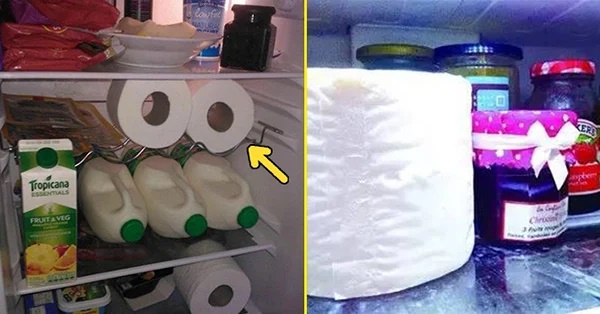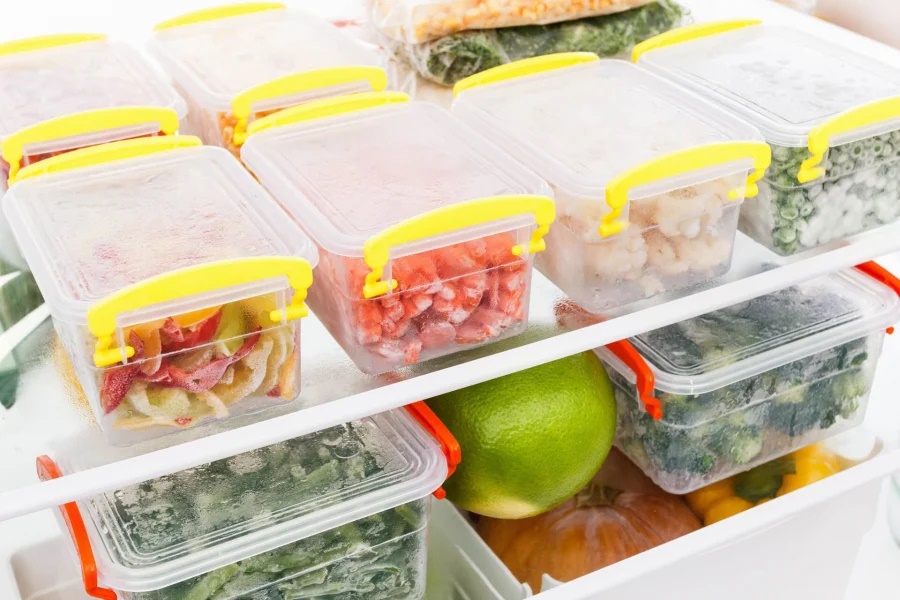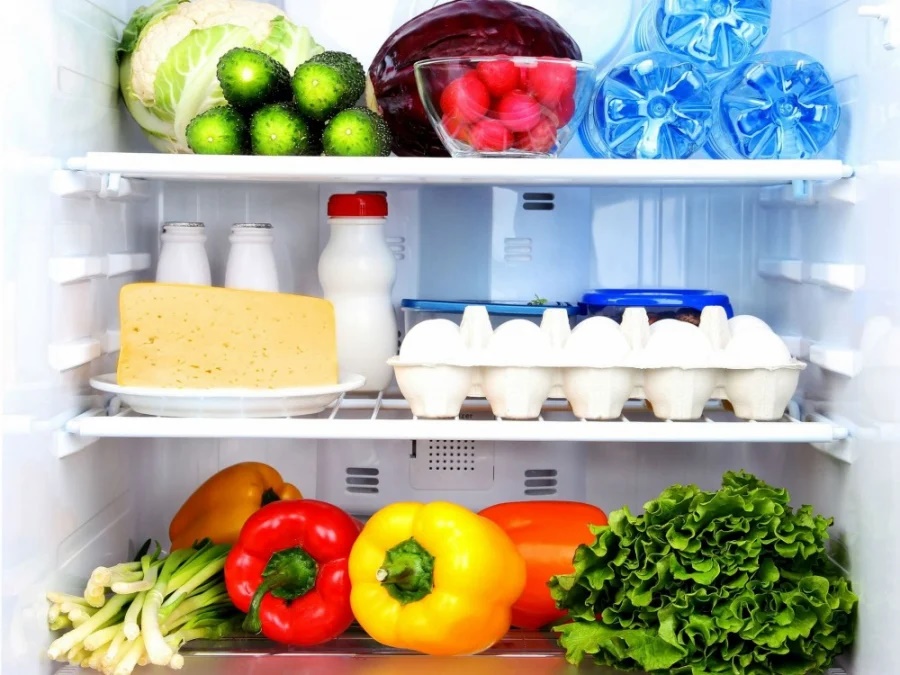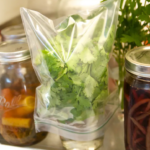Your refrigerator is probably a familiar appliance in every household for storing food for busy days when you can’t go grocery shopping. However, it is quite an energy-consuming device as it needs to be constantly powered. A little tip for you, try placing a roll of toilet paper in your fridge, and you’ll see your electricity bill cut in half. Plus, it offers an additional benefit for your family.
Toilet Paper to the Rescue for Fridge Odor
The refrigerator is an indispensable appliance in modern homes, helping families preserve food for longer and saving time on grocery shopping. Weekly meals are stored in the fridge, ready to be taken out and prepared whenever needed. Due to the large amount of food stored, refrigerators can sometimes emit unpleasant odors. Even with thorough cleaning, the fridge may still develop odors over time.

Getting rid of fridge odors is quite simple. Prepare some new rolls of toilet paper and place them inside your refrigerator. You can put a roll in each compartment, including the freezer, to enhance the effect. After just one night, your fridge will be free of unpleasant odors. The next morning, when you open the fridge door, you’ll notice the absence of any unpleasant smells, all thanks to the toilet paper that absorbed the odors, eliminating the need for tedious cleaning or emptying the fridge.
So, why does toilet paper work against fridge odors? It’s quite simple. Fridge odors are often caused by high humidity levels inside. Therefore, placing paper towels inside acts as a “moisture absorber,” soaking up excess moisture and helping to prevent the formation of unpleasant smells.
If you don’t want to use toilet paper, you can utilize old newspaper sheets readily available in your home. Crumple up the newspaper into balls and stuff them into the corners of your fridge. This also helps reduce moisture and absorb unpleasant odors.
Some Tips for Food Storage in the Refrigerator
Fresh meat and fish must be stored in sealed bags or containers.

Raw meat is an ideal environment for bacterial growth. If left uncovered in the fridge, it can spread bacteria to other foods. Whether it’s cooked or raw food, it’s best to store them in sealed bags or containers to minimize contact and prevent cross-contamination. Ideally, keep raw and cooked foods in separate compartments.
Don’t Store Meat on the Top Shelf
Storing raw meat on the top shelf may cause meat juices to drip through the cracks and affect other foods below. It’s recommended to keep meat in sealed containers and place them on the bottom shelf if you plan to consume it within a day or two. If not, store the meat in the freezer.

Don’t Keep Food for Too Long
While the fridge can extend the shelf life of food, not all foods are safe to be stored indefinitely. Over time, the quality and nutritional value of stored food will decline. Therefore, it’s essential to plan your grocery shopping accordingly and buy only the amount of food needed for a week.
Properly Store Leftovers
Leftovers should be stored in clean containers with tight-fitting lids or wrapped in plastic wrap before placing them in the fridge. It’s best to put leftovers in the fridge within two hours of cooking to prevent bacterial growth, maintain flavor, and ensure your family’s health.
According to Cars and Sports



































